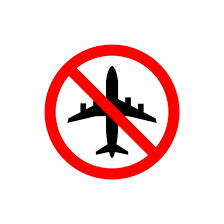Several incidents have occupied Canadian media over this holiday season. We’ve all been continually told to limit our worlds to our households and not travel unless essential. Several (the ones we know about) of our politicians – the people making these rules and urging us to follow them – got on planes for vacations in sunny parts of the world. It seems that they are special, different from the rest of us. Their mantra seems to be that they’re working hard so deserve to live outside these expectations, besides, flying away isn’t hurting anyone, so what’s the problem? Well, actually, there is a problem. It’s not just politicians. A lot of us have this attitude: I’m different! I work at home so I can go where I want and do as I choose so long as I don’t hurt anyone. I’m an individual, these are my rights. This is the mantra, the faith of a certain kind of self.
After the UK Brexit vote there was a lot of analysis about why the “No” vote won. Similar analyses emerged after Trump’s election. In the UK, David Goodhart’s 2017 book, The Road to Somewhere described two groups: somewheres and anywheres (https://www.bbc.com/news/av/uk-39293519). The book captures the mantra of a side of society shaped by technocratic elites, the mandarins of the globalized market, who believe the summa of life is their capacity to make money, work anywhere and go anywhere anytime they please so long as it “does no harm”. Hence the politicians and many others.
What these new globalized cosmopolitans fail to see is that their brave new world of “anywhere” winners is built on the evisceration the local. The “somewheres” are rooted in communities bigger than themselves. “Anywheres” don’t belong; they own real estate until its profitable to sell. They have their clubs – the gym they turn up to for a workout (unless provided at home via on-line services), they may drive to a coffee shop for a meet-up but what is gone is any long term belonging in neighbourhood social groups like clubs, churches or community associations. These are places where you turn up week after week, month after month, year in and year out in the local to be with people who aren’t always like you. Where, over years of being connected you’ve grown together in personal and social life. In these “somewhere” relationships you start to experience and value the “common good” rather than one’s own ends. The lives of others aren’t abstractions to talk about or feel sorry for (the elderly in nursing homes or singles in lockdown): they’re John and Ann you know well, they’re Dave whose always keeping you around talking; Jane who can’t stop being attentive to the kids. Bill who can’t speak a sentence without the “F” bomb, Lisa who would run away if she saw your shadow. In these groups, like awkward, old-fashioned congregations, one knows the math prof. who, month after month, year by year, has sipped coffee with Joan a bit of a lost soul who never quite knows how to dress. These are fragile chords of somewheres that weave together, thread by thread, the local, that experience of belonging, of knowing and being for each other -this common sense we’re accountable to one another.
This cloth of this common good, woven over generations, has been eviscerated. It has been dismissed and pulled apart by the globalized elites, the new mandarins of the neo-liberal regime who see themselves as unencumbered individuals going anywhere and being anything. And so, in this disinvestment from place (somewhere) what is it to you if I choose to go where I want? It’s my right. I deserve it. I’m not breaking the rules.
As we return to our rhythms don’t believe the local, connecting relationship of congregations, local societies, libraries or school associations are just the inconsequential needs of somewheres. They mean everything to the ways we will care for and be accountable for one another; they form us in that common good where we are accountable for each other. When we live in and for the common good we stay close to one another, we walk with one another through these tough times. We keep lockdown instructions because we have come to know that this common good is more life giving than the uprooted individualism of anywhere.
“Thank-you” pastors and leaders heading back to congregations. Thank you, healthcare workers, librarians, shop clerks, workers of all kinds in our neighbourhoods for being rooted, committed to building the social ecology of your communities. In the somewheres there still resides a vision of life bigger than oneself.
